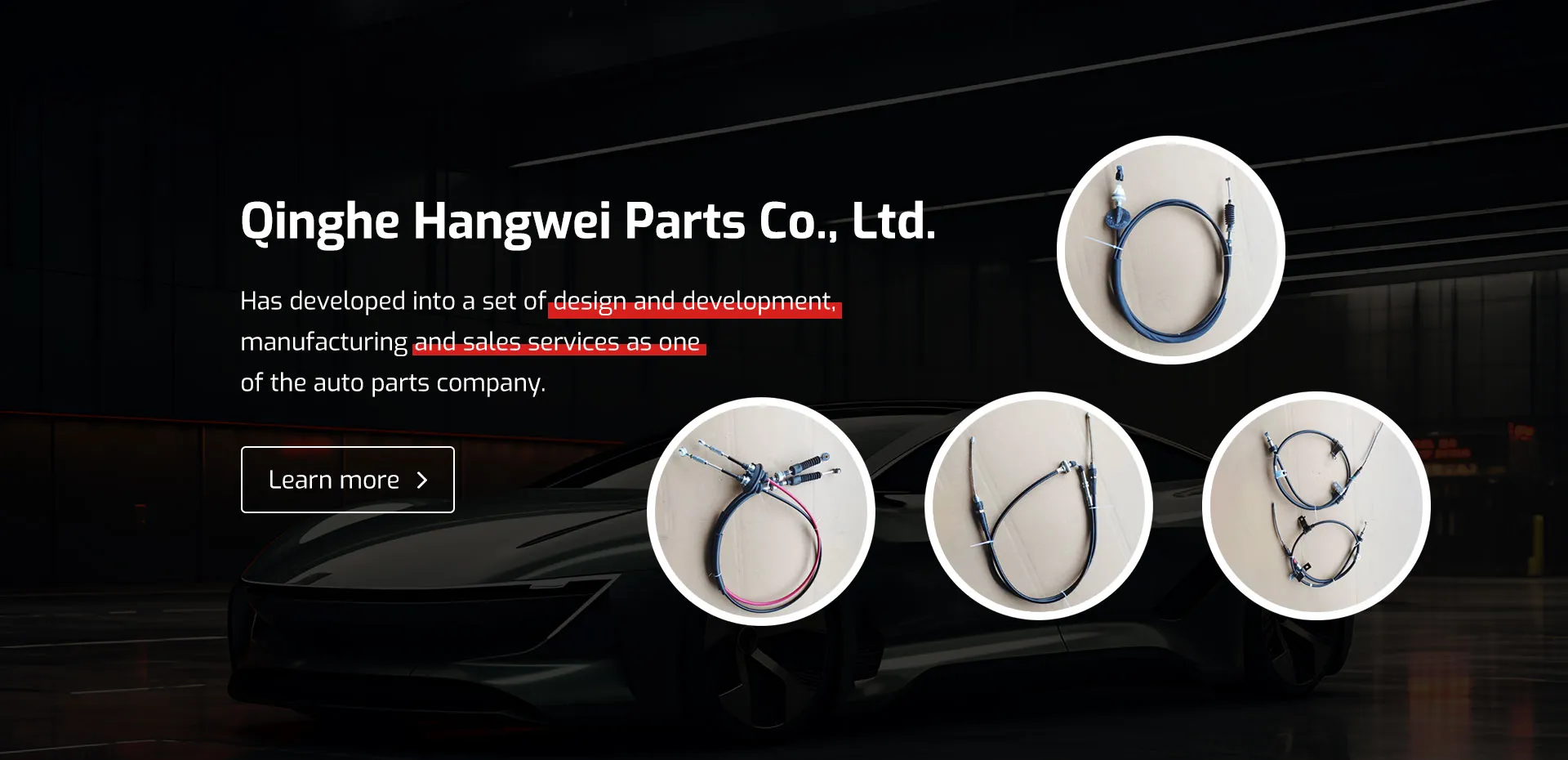Bespoke Handbrake Cables Tailored to Your Vehicle's Specific Needs
Custom Made Handbrake Cables The Importance of Precision and Performance
In the world of automotive engineering, the performance of a vehicle is heavily reliant on the quality of its components. One such component that often goes overlooked but is crucial for safety and functionality is the handbrake cable. Custom made handbrake cables have become increasingly popular among car enthusiasts, professional mechanics, and OEM manufacturers who understand the significance of precision and performance in automotive applications.
Understanding Handbrake Cables
At its core, the handbrake cable serves a simple yet essential function it connects the handbrake lever to the brake mechanism, allowing drivers to engage and disengage the brakes on the rear wheels. While it might seem like a simple mechanism, the complexity lies in the installation and materials used. Various factors, such as the make and model of the vehicle, the specific braking system in place, and the intended use (e.g., daily driving vs. racing), can all influence the design of the handbrake cable.
Why Customization Matters
The need for custom made handbrake cables arises when standard cables cannot meet specific requirements. Performance vehicles, modified cars, or vintage models often have unique specifications that off-the-shelf parts cannot accommodate. This is where custom fabrication shines. By creating handbrake cables tailored to the vehicle's unique specifications, manufacturers can ensure optimal performance, safety, and longevity.
Moreover, using high-quality materials is vital in the construction of custom handbrake cables. Stainless steel, for instance, is often preferred due to its resistance to corrosion and high tensile strength. Unlike stock cables, which may use lower-quality materials that degrade over time, custom cables can be engineered to withstand harsher conditions and provide a more consistent performance, particularly in high-stress environments like motorsports.
Precision Engineering
The process of manufacturing custom handbrake cables involves precision engineering. Each cable must be measured accurately to ensure proper fitment and function. This involves not only the length of the cable but also the diameter of the cable sleeve, the type of end fittings, and how the cable interacts with the braking mechanism. By employing advanced CAD (Computer-Aided Design) software, engineers can create detailed designs that account for all variables, ensuring a perfect fit that enhances performance.
custom made handbrake cables

Furthermore, professional manufacturers often conduct rigorous testing and quality control on their custom cables. This approach guarantees that each cable meets or exceeds safety standards and performance requirements. Whether it’s a cable designed for a classic car restoration or a custom setup for a competitive racing vehicle, attention to detail in manufacturing can make all the difference in performance.
Benefits of Custom Made Handbrake Cables
1. Enhanced Performance Custom handbrake cables can significantly improve the responsiveness of the handbrake, providing drivers with greater confidence when relying on this safety feature.
2. Durability High-quality materials and tailored design result in cables that are more resistant to wear and tear, ultimately extending the lifespan of the braking system.
3. Personalization For automotive enthusiasts, a custom handbrake cable can be tailored to fit the aesthetic of the vehicle, allowing for a cohesive look throughout the car.
4. Improved Safety A reliable handbrake is critical for vehicle safety, especially in situations where the car needs to be parked on an incline or during emergency braking.
Conclusion
The importance of custom made handbrake cables cannot be overstated. They represent a crucial aspect of vehicle safety and performance that often goes unnoticed by the average driver. Whether for a high-performance race car, a classic restoration, or simply to enhance the reliability of a daily driver, investing in quality custom handbrake cables is a decision that reflects a commitment to safety, precision, and driving pleasure. As the automotive industry continues to evolve, so too will the necessity for high-quality, tailored components that can meet the demands of both performance seekers and everyday drivers alike.
-
Upgrade Your Vehicle with High-Quality Handbrake CablesNewsNov.01,2024
-
Optimize Your Bike's Performance with Quality CablesNewsNov.01,2024
-
Enhance Your Vehicle's Performance with Quality Clutch ComponentsNewsNov.01,2024
-
Elevate Your Vehicle's Performance with Quality Throttle CablesNewsNov.01,2024
-
Elevate Your Vehicle's Performance with Quality CablesNewsNov.01,2024
-
Affordable Solutions for Your Cable NeedsNewsNov.01,2024
